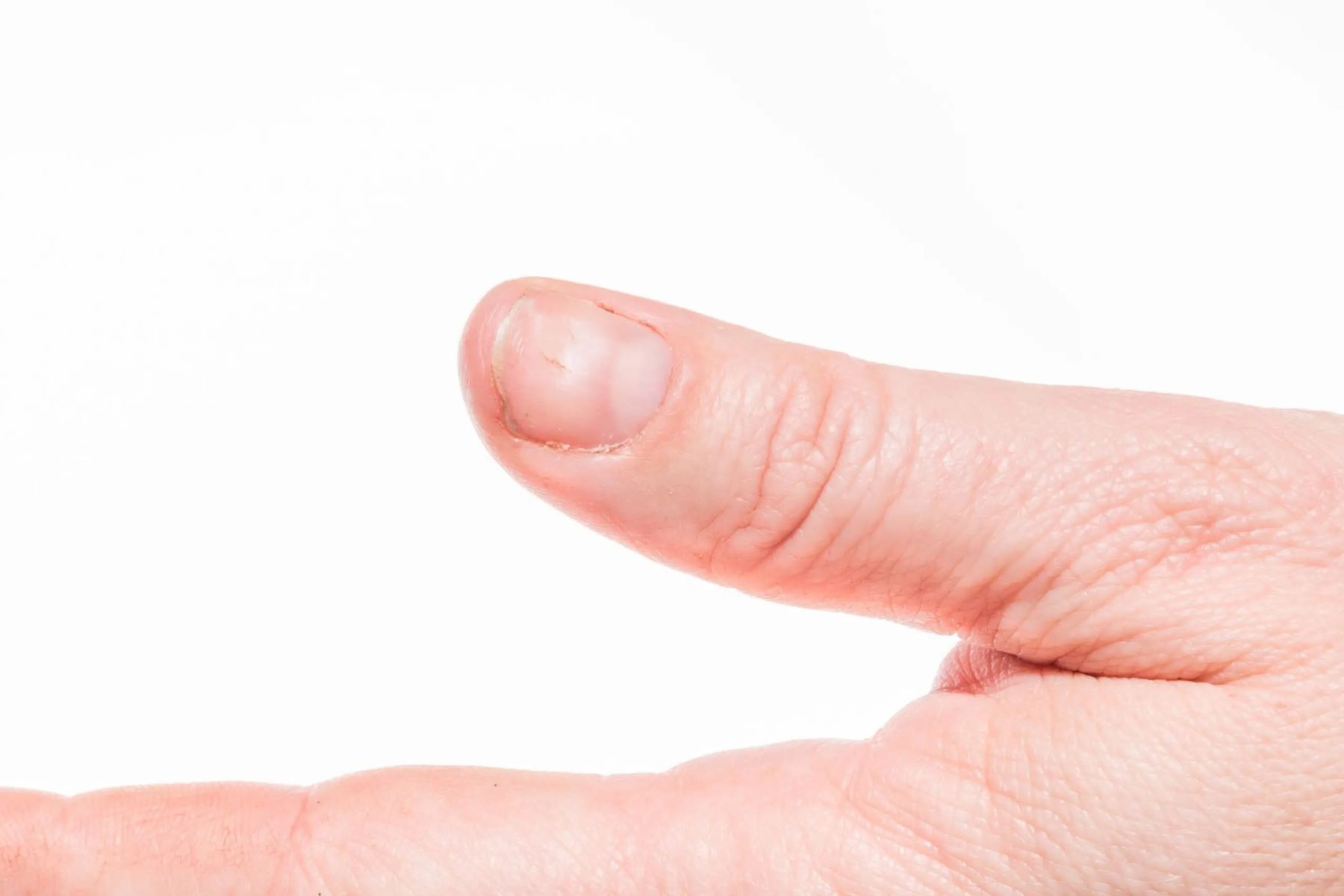
Koilonychia, also known as "spoon nails," is a condition where nails become abnormally thin and concave, resembling the shape of a spoon. But what causes koilonychia? This nail disorder can result from various factors, including iron deficiency anemia, trauma, or even genetic predisposition. Sometimes, it might be a sign of underlying health issues like hypothyroidism or heart disease. Understanding koilonychia is crucial because it can provide insights into one's overall health. This blog post will delve into 50 fascinating facts about koilonychia, shedding light on its causes, symptoms, and potential treatments. Whether you're curious about nail health or concerned about specific symptoms, this guide will offer valuable information to help you understand and manage koilonychia better.
Key Takeaways:
- Koilonychia, or "spoon nails," can be caused by factors like anemia, thyroid issues, and nail trauma. Treatment involves addressing underlying causes and taking care of the nails.
- Preventing koilonychia involves a balanced diet, proper nail care, and regular exercise to promote good circulation and overall nail health.
What is Koilonychia?
Koilonychia, also known as "spoon nails," is a condition where the nails become abnormally thin and concave. This peculiar nail shape can be a sign of underlying health issues. Let's dive into some fascinating facts about this condition.
- Koilonychia literally means "hollow nails" in Greek.
- Spoon nails can be hereditary or acquired due to various factors.
- Iron deficiency anemia is a common cause of koilonychia.
- Nail trauma can lead to the development of spoon nails.
- Hypothyroidism is another condition associated with koilonychia.
- Raynaud's disease can also cause spoon-shaped nails.
- Koilonychia can be a sign of celiac disease.
- Nail infections might result in koilonychia.
- Psoriasis can sometimes cause spoon nails.
- Lichen planus, a skin condition, might lead to koilonychia.
Symptoms and Diagnosis
Identifying koilonychia involves looking at specific symptoms and undergoing certain diagnostic tests. Here are some key points to consider.
- Concave nails are the primary symptom of koilonychia.
- Brittle nails often accompany spoon nails.
- Nail discoloration can be a sign of koilonychia.
- Blood tests can help diagnose underlying causes like anemia.
- Thyroid function tests might be necessary to rule out hypothyroidism.
- Skin biopsy can be performed if a skin condition is suspected.
- Nail clippings might be examined for fungal infections.
- Family history can provide clues about hereditary koilonychia.
- Physical examination by a doctor is crucial for diagnosis.
- Nail growth patterns can help in identifying koilonychia.
Treatment and Management
Managing koilonychia involves addressing the underlying causes and taking care of the nails. Here are some effective strategies.
- Iron supplements can help if iron deficiency is the cause.
- Thyroid medication might be needed for hypothyroidism-related koilonychia.
- Topical treatments can be used for nail infections.
- Moisturizing the nails can prevent brittleness.
- Protective gloves can help avoid nail trauma.
- Dietary changes might be necessary for celiac disease patients.
- Regular check-ups with a doctor are important for monitoring.
- Avoiding harsh chemicals can protect the nails.
- Gentle nail care practices can prevent further damage.
- Stress management techniques might help if stress is a contributing factor.
Interesting Facts
Koilonychia has some intriguing aspects that go beyond its medical implications. Here are some lesser-known facts.
- Ancient Greeks were the first to describe koilonychia.
- Spoon nails can sometimes correct themselves over time.
- Pregnancy can temporarily cause koilonychia due to hormonal changes.
- High altitudes might lead to spoon nails in some individuals.
- Koilonychia can affect both fingernails and toenails.
- Nail polish can sometimes hide the appearance of spoon nails.
- Koilonychia is more common in children than adults.
- Men are less likely to develop koilonychia than women.
- Vitamin deficiencies other than iron can also cause spoon nails.
- Environmental factors like exposure to cold can contribute to koilonychia.
Prevention Tips
Preventing koilonychia involves maintaining good overall health and taking specific precautions. Here are some tips to keep in mind.
- Balanced diet rich in vitamins and minerals can prevent deficiencies.
- Regular exercise promotes good circulation, which benefits nail health.
- Avoiding nail trauma by being cautious with activities.
- Proper nail care including trimming and filing.
- Wearing gloves during cold weather to protect nails.
- Hydration is key for maintaining healthy nails.
- Avoiding smoking as it can affect nail health.
- Limiting alcohol consumption can prevent nutritional deficiencies.
- Regular medical check-ups to catch any underlying conditions early.
- Stress reduction techniques like yoga or meditation can help maintain overall health.
Understanding Koilonychia
Koilonychia, or spoon nails, is more than just a cosmetic issue. It often signals underlying health problems like iron deficiency anemia, hypothyroidism, or even heart disease. Recognizing the signs early can lead to timely medical intervention. If you notice your nails becoming concave or spoon-shaped, consult a healthcare professional. They might recommend blood tests to check for deficiencies or other conditions. Simple lifestyle changes, like improving your diet or taking supplements, can make a big difference. Don't ignore these subtle signs your body gives you. Staying informed and proactive about your health can prevent more serious issues down the line. So, keep an eye on your nails—they might be telling you something important.
Frequently Asked Questions
Was this page helpful?
Our commitment to delivering trustworthy and engaging content is at the heart of what we do. Each fact on our site is contributed by real users like you, bringing a wealth of diverse insights and information. To ensure the highest standards of accuracy and reliability, our dedicated editors meticulously review each submission. This process guarantees that the facts we share are not only fascinating but also credible. Trust in our commitment to quality and authenticity as you explore and learn with us.
